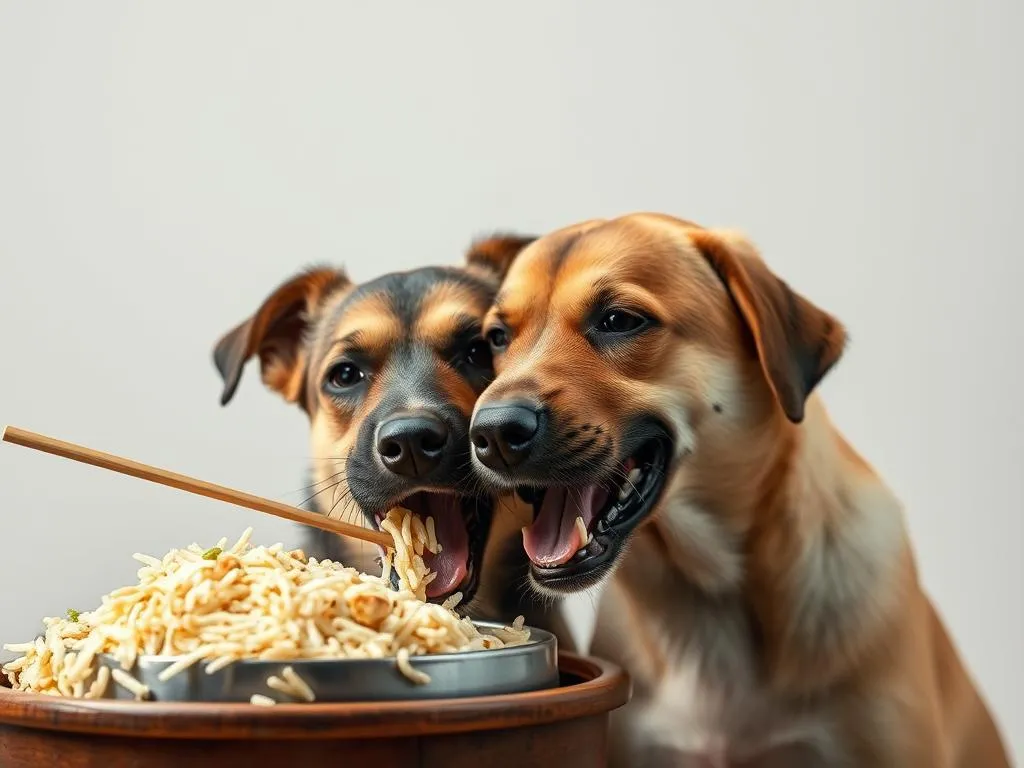
Introduction
Dog nutrition is a critical component of pet ownership, influencing everything from a dog’s energy levels to their overall health. One common question that arises among dog owners is “can dogs eat rice?” This question is particularly relevant when considering the various food options available for our furry friends. Understanding whether rice can be a beneficial part of a dog’s diet requires examining its nutritional profile, how dogs digest it, and the potential benefits and risks associated with feeding it to dogs.
This article aims to provide clear, evidence-based information about rice in a dog’s diet, helping you make informed choices about your pet’s nutrition.
Understanding Dog Nutrition
What Do Dogs Need?
Dogs require a diet rich in essential nutrients to thrive. These nutrients include:
- Proteins: Necessary for muscle development and repair.
- Fats: Provide energy and support cell structure.
- Carbohydrates: Serve as an energy source and aid in digestion.
- Vitamins and Minerals: Support various bodily functions, including immune health and bone growth.
A balanced diet is crucial to ensure that your dog receives all these nutrients in appropriate proportions. Each dog is unique, and their nutritional needs can vary based on factors like age, breed, and activity level.
Common Myths About Dog Food
Several myths surround dog nutrition that can lead to confusion among pet owners. Here are a few common misconceptions:
- Myth: Dogs are strictly carnivorous.
-
Truth: While dogs are primarily meat-eaters, they can also benefit from carbohydrates and plant-based nutrients.
-
Myth: All human food is harmful to dogs.
- Truth: Many human foods, like rice and certain vegetables, are safe and can be beneficial for dogs.
It’s essential to consult with a veterinarian to dispel these myths and tailor your dog’s diet to their specific needs.
The Role of Carbohydrates in Dog Diets
Why Carbohydrates Matter
Carbohydrates are an essential source of energy in a dog’s diet. They break down into glucose, which is used by the body for fuel. Carbohydrates can be derived from various sources, including grains, vegetables, and fruits. Each source has its unique nutritional profile:
- Grains: Such as rice and oats, are often easily digestible and provide quick energy.
- Vegetables: Like peas and sweet potatoes, offer fiber, vitamins, and minerals.
How Dogs Digest Carbohydrates
Dogs have a relatively simple digestive system, which allows them to process carbohydrates effectively. The digestive process begins in the mouth, where enzymes in saliva start breaking down food. The stomach then further digests the food before it moves to the intestines, where nutrients are absorbed.
Fiber also plays an important role in digestion, promoting healthy bowel movements and overall gut health. Including a source of fiber in your dog’s diet can benefit their digestive process.
Rice as a Dog Food Option
Nutritional Value of Rice
Rice is a popular carbohydrate source for dogs, particularly white and brown rice. Here’s a breakdown of the nutrients found in these types:
- White Rice: Contains easily digestible carbohydrates and small amounts of protein. It’s lower in fiber compared to brown rice.
- Brown Rice: Offers more fiber, vitamins, and minerals. It is a whole grain that retains its bran and germ, making it a healthier option overall.
When compared to other grains, rice is often favored for its digestibility and palatability.
Types of Rice Suitable for Dogs
There are several types of rice you can consider for your dog’s diet:
- White Rice: Often recommended for dogs with digestive issues due to its easy digestibility.
- Brown Rice: A whole grain that provides more nutrients and fiber.
- Jasmine and Basmati Rice: Aromatic varieties that are also safe for dogs when cooked properly.
Always ensure that rice is cooked thoroughly before serving it to your dog, as raw rice may be difficult for them to digest.
Health Benefits of Rice for Dogs
Rice can offer several health benefits for dogs:
- Easy Digestion: Particularly beneficial for dogs recovering from gastrointestinal issues.
- Energy Source: Provides a quick source of energy, especially for active dogs.
- Gluten-Free: Suitable for dogs with gluten sensitivities or allergies.
Rice is often included in bland diets recommended by veterinarians for dogs experiencing digestive upset or recovering from surgery.
Can Dogs Eat Rice?
Safety Considerations
While rice is generally safe for dogs, there are some potential risks to be aware of:
- Allergies: Some dogs may have allergies to grains, including rice. Always monitor your dog for any adverse reactions.
- Overfeeding: Rice should be given in moderation. Too much rice can lead to obesity and nutritional imbalances.
It’s crucial to practice portion control and consult with your veterinarian to determine the appropriate amount for your dog’s size and dietary needs.
How to Prepare Rice for Dogs
Preparing rice for your dog is straightforward. Here’s a simple step-by-step guide:
- Choose the Type of Rice: White or brown rice are both good options.
- Rinse the Rice: Rinse the rice in cold water to remove excess starch.
- Cook the Rice: Boil water and add the rinsed rice. Cook according to the package instructions (usually about 15-20 minutes for white rice and 30-40 minutes for brown rice).
- Cool Before Serving: Allow the rice to cool completely before serving it to your dog.
- Recommended Serving Size: A general guideline is 1/4 cup of cooked rice for every 10 pounds of body weight, but adjust based on your dog’s overall diet and energy needs.
Combining Rice with Other Ingredients
Rice can be served alone or combined with other ingredients to create a balanced meal. Here are some safe foods to mix with rice:
- Lean Proteins: Cooked chicken, turkey, or fish.
- Vegetables: Carrots, peas, or green beans (cooked and chopped).
- Broth: Low-sodium chicken or beef broth can add flavor.
Avoid mixing rice with ingredients that are toxic to dogs, such as onions, garlic, and certain spices.
Signs of Allergies or Intolerance
Recognizing Allergic Reactions
It’s important to monitor your dog for any signs of allergies or food intolerances when introducing new foods like rice. Common symptoms may include:
- Itching: Excessive scratching or biting at the skin.
- Gastrointestinal Issues: Vomiting, diarrhea, or gas.
- Ear Infections: Frequent ear issues can indicate food allergies.
If you notice any of these symptoms, consult your veterinarian for guidance.
Alternatives to Rice
If rice is not suitable for your dog, there are other carbohydrate sources you can consider:
- Quinoa: A complete protein that is also gluten-free.
- Sweet Potatoes: Rich in vitamins and fiber, sweet potatoes are another healthy option.
- Oats: Easily digestible and high in fiber, oats can be a good alternative.
A varied diet can help ensure that your dog receives a broad spectrum of nutrients.
Conclusion
In conclusion, rice can be a safe and beneficial addition to your dog’s diet when prepared and served correctly. It provides easy-to-digest carbohydrates and can help with various health issues, particularly digestive problems. Always consult with your veterinarian to tailor your dog’s diet to their individual needs and monitor their reactions to new foods. A balanced diet is essential for your dog’s health and well-being, and rice can play a role in achieving that balance.
Frequently Asked Questions (FAQ)
Can all dogs eat rice?
Most dogs can safely eat rice, but some may have allergies or sensitivities to grains. Always introduce new foods gradually and monitor for any adverse reactions.
Is brown rice better than white rice for dogs?
Brown rice is generally considered healthier due to its higher fiber and nutrient content, but both white and brown rice can be suitable depending on your dog’s specific needs.
How often can I feed my dog rice?
Rice can be fed as an occasional treat or part of a balanced meal. It should not replace a complete diet but can complement it.
Can rice help with my dog’s upset stomach?
Yes, rice is often recommended as part of a bland diet for dogs with gastrointestinal issues due to its easy digestibility.
What should I do if my dog has a reaction to rice?
If your dog shows signs of an allergic reaction or gastrointestinal distress after eating rice, discontinue feeding it and consult your veterinarian for advice.
By understanding your dog’s nutritional needs and the role of rice in their diet, you can make informed choices that promote their health and happiness.









